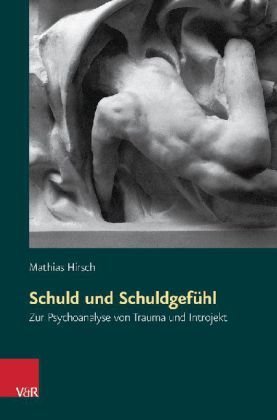Since Biblical times the themes of guilt and guilty feelings have been central topics of human existence. Whether in mythology, in drama or in everyday interpersonal life - guilt has always been considered a compass of human behavior. Sigmund Freud, in his writings on psychoanalysis, too was concerned with guilt and feelings of guilt from the very beginning; and he put much emphasis on delineating the two: Feeling guilty is a problem not only for the offender, but also for someone who, for example, in the Oedipus complex, is confronted with his own passive feelings and desires, which can cause feelings of guilt. The conscience - in Freud the superego - arises from guilty feelings and renders humans capable both of feeling guilt as well as achieving personal growth.In the psychoanalytic object relations theory, the guilt of the perpetrator is seen as only one side of the trauma that ensues through violence toward a victim and that, through introjection and finally identification, may also cause feelings of guilt in the victim. Once psychoanalysis has identified this guilt in the victim, during therapy it must carefully differentiate between guilt and the feeling of guilt.In this basic work Mathias Hirsch provides the first systematic look at guilt and feelings of guilt, as defined by the following themes:- Basic feelings of guilt (from an unwanted existence)- Vital feelings of guilt (from having vital needs impeded)- Separation feelings of guilt (from a late-occurring desire for autonomy)- Traumatic feelings of guilt (from internalizing traumatic violence).Since Biblical times the themes of guilt and guilty feelings have been central topics of human existence. Whether in mythology, in drama or in everyday interpersonal life guilt has always been considered a compass of human behavior. Sigmund Freud, in his writings on psychoanalysis, too was concerned with guilt and feelings of guilt from the very beginning; and he put much emphasis on delineating the two: Feeling guilty is a problem not only for the offender, but also for someone who, for example, in the Oedipus complex, is confronted with his own passive feelings and desires, which can cause feelings of guilt. The conscience in Freud the superego arises from guilty feelings and renders humans capable both of feeling guilt as well as achieving personal growth.In the psychoanalytic object relations theory, the guilt of the perpetrator is seen as only one side of the trauma that ensues through violence toward a victim and that, through introjection and finally identification, may also cause feelings of guilt in the victim. Once psychoanalysis has identified this guilt in the victim, during therapy it must carefully differentiate between guilt and the feeling of guilt.In this basic work Mathias Hirsch provides the first systematic look at guilt and feelings of guilt, as defined by the following themes: Basic feelings of guilt (from an unwanted existence) Vital feelings of guilt (from having vital needs impeded) Separation feelings of guilt (from a late-occurring desire for autonomy) Traumatic feelings of guilt (from internalizing traumatic violence).


